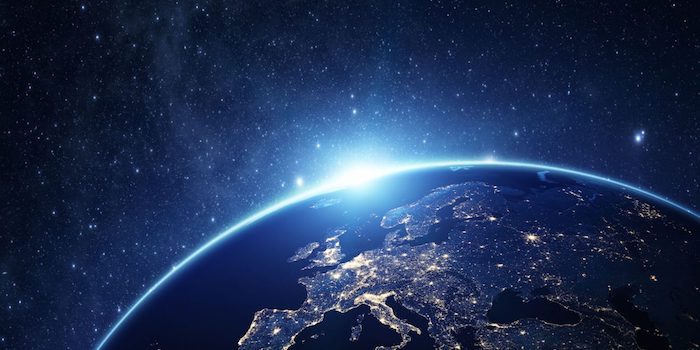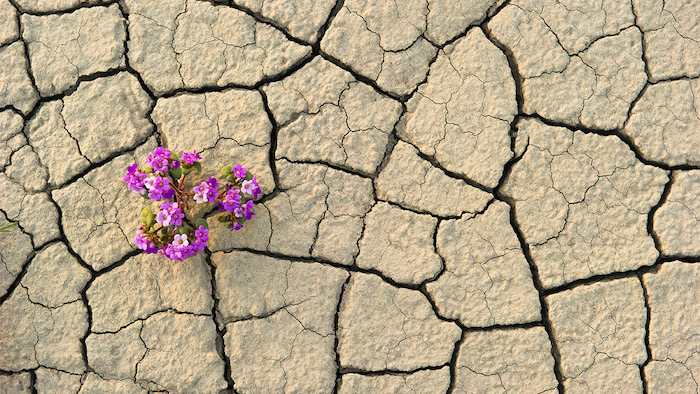The Rule of Impermanence
It is a great blessing to live where apps connect but no one responds. Want a ride? Drive yourself. Hungry? Cook. Something broke? Fix it. Lost? Look at the sun, moon, and stars. Many folks don’t understand a life without apps while I can’t understand why anyone would give their life over to pernicious algorithms and phony social media-curated friends. One day, years from now, we may come to the realization that the promise of “there’s an app for that” was actually the beginning of our end.
Where I live the Milky Way is not a candy bar; it is celestial magic that sings like a chorus of hope against a canvas of wonder. Want some awe? Ditch the apps. Flee the land of lights that fool us into a false sense of security. Go where IRL (social media slang for “in real life”) actually is real life. Head into the wilderness to embrace the greatest mother of all: Nature. She will hold you, humble you, teach you, and if you are lucky, she will let you stay.
I live where what the “Dean of Western Writers,” Wallace Stegner called “the native home of hope.” Where, he suggested, we have the chance “to create a society to match its scenery.” Not through a mythical sense of rugged American individualism; rather, through inspired cooperation by and between ourselves and the nature that surrounds us. Where the index-finger wave above the steering wheel from the passing rusted-out pickup truck means “I see you, I know you, and I am here for you.” Where Sundays are still meant for rest and gratitude. Where Mondays are met with strength and optimism rather than dread. Where deceit will send you back to the land of apps.
Where I live, the change of seasons still matters. They mark one of the greatest lessons we can ever learn: the rule of impermanence. Whatever has the capacity to arise will subsequently also pass away—whether good, neutral, or bad. The only permanent condition is impermanence. Further, grasping and clinging serves no purpose; it only assures suffering. Where I live, we not only embrace change, we honor it. Where attempting to defeat reality is a fool’s errand. Yes, we have our pretenders too, but they don’t last long. The pandemic brought thousands to the Mountain West, but an authentic life is not for everyone. Many have already left.
If you live where the change of seasons is unremarkable, or where bright city lights obscure the magnificence of nature, I offer you a reminder with the verse, below. Trust me, there is a better world and tomorrow out there. Just put down your smartphone and let all your senses come alive again. Bathe yourself in the candescent wisdom of awareness. Your senses—moderated by your soul— will guide you better than any app ever could. Take the big leap: trust in yourself, again.
Summer’s Farewell
The sun tilts lower each day casting
golden shadows and earlier nights
Shooting stars fall quiet now
as our galaxy calls for autumn
Tan lines and calloused feet
reveal a summer well lived
Wildflowers tilt their heads
to deposit their seeds of renewal
Bears fill their bellies with berries
while trout gulp tasty hoppers
Bulking up for the big pause—
the long ’n lazy winter slumber
The deer and elk choose their mates
Nature at work on spring babies
Antlers will fall once the loving is done
and the snow piles high mid-winter
We all return to the earth after
soaring on the breezes of deliverance
We inside, seeds to soil, sap to roots
a flourish of leafy radiance waves goodbye
Soon we will stand close to the fire
before the embers of sweet piñon
To shake off the cold that clings
like an aimless lonesome drifter
Closer to our souls that remind us
of what remains after summer’s glory
To center ourselves again in the
humility of a frigid January night
We bid a melancholy adieu
until we round the bend of spring
Clutching memories of early sunrises
and praying for the grace to return anew
The best way to honor impermanence is to consider the cloud filled sky. The question is, should we be as the clouds, or the sky?
Heaven (Only) Knows
Clouds come, clouds go
White and fluffy, dark and dreary
Tall, round, flat, wispy
Painting the sky with pleas for attention
Each of curious character
Happy, sad, generous, or dangerous
Always becoming
Billowing an identity all their own
Beseeching the earth
Throwing thunder and lightning
Casting nourishing rain
At times clever, at others confused
Always passing by
They scuttle east towards obscurity
The blue sky implores
the wind to push the drama along
That big blue screen
The sky varies only a shade or two
Blue to bluer to bluest
A canvas of knowing stability
Unshaken by volatility
The sky laughs at the moody clouds
with a big wide grin
while it peeks around the vapor
The Buddha knew
Should we be as a cloud?
Or be like the blue?
A choice between the ego and soul
An easy decision, yet so hard to do
Finally, consider this time of seasonal change as an opportunity to let go of things that cause you mental and emotional disturbance. As the Thai Buddhist monk, Ajahn Chaa suggested, “If you let go a little, you will have a little peace. If you let go a lot, you will have a lot of peace. If you let go completely, you will have complete peace.” Let go and join the flow. Then, of course, the trick is to not grab again!
Have a wonderful autumn wherever you may be. We’ve had our first dusting of snow but the leaves are only starting to change. But change they must; change they will.
Impermanence rules.










